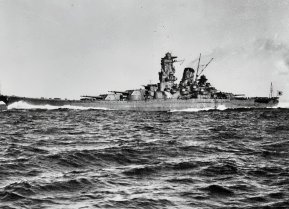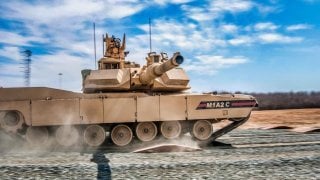Has Russia Already Won the War in Ukraine?
Can we conceive of other outcomes under a new Russian leadership if Putin were to be overthrown?
Summary: The article delves into the complexities of Russia's war on Ukraine as it enters its third year, questioning the endgame of this conflict. It scrutinizes the evolving military dynamics, the potential for ceasefire and peace negotiations, and the broader geopolitical implications, including the risks of the war spilling over into NATO territories. The piece also contemplates the strategic objectives of the US and NATO allies in seeking to 'defeat' Russia, a nation with a substantial nuclear arsenal, and ponders the aftermath of a hypothetical Russian defeat. It reflects on Putin's motivations, rooted in a desire to reassert Russian dominance and prevent Ukraine's NATO integration, against a backdrop of historical grievances and perceived Western encroachments. Additionally, the article touches on the global ramifications of the conflict, notably its impact on China's military ambitions towards Taiwan, drawing parallels between Russian and Chinese military vulnerabilities.
The Endgame of Russia's War on Ukraine: Analysis and Prospects
As Russia’s war on Ukraine enters its third year, we need to ask how will this war end? I will examine first, how the military fight is changing and what the prospects are for winners and losers. Second, what are the possibilities for a ceasefire and negotiations aimed at an enduring peace? Third, what are the risks of this war extending further into neighboring NATO countries? Fourth, if the aim of the US and its NATO allies is to ‘defeat’ Russia how will this be achieved against a country with 1,500 strategic nuclear warheads? And fifth what would a defeated Russia look like? A Weimar Germany? Or can we conceive of other outcomes under a new Russian leadership?
But before we examine these critically important questions, we need to remind ourselves of the reasons why President Putin alleges he went to war. In that context, we need to take notice of the words of CIA director William Burns: ‘One thing I have learned is that it is always a mistake to underestimate Putin’s fixation on controlling Ukraine and its choices. Without that control he believes it is impossible for Russia to be a great power.’
Putin repeatedly states that there is no such country as Ukraine and that Ukrainians and Russians are one people sharing the same historical and spiritual space, speaking the same language, and believing in the same Orthodox faith. Before he died in 2008, Alexander Solzhenitsyn proclaimed that Russia (Great Russians), Belarus (White Russians) and Ukraine (Little Russians) should be recreated as a unified Slavic country. After two years of vicious war, most Ukrainians are, if anything, even more determined to reject this Great Russian imperial view.
Putin claims that if Ukraine becomes a member of NATO, it will become a direct national security threat to Russia or, as one of his advisers Sergei Karaganov puts it, ‘a spearhead aimed at the heart of Russia’. America’s George Kennan called the expansion of NATO ‘the most fateful error of American policy in the entire post-Cold War era’. And the former British ambassador to Moscow from 1988 to 1992 and chair of the Joint Intelligence Committee from 1992 to 1993, Rodric Braithwaite, argues that Western negotiators gave Gorbachev ambiguous assurances that NATO did not intend to expand any further than a unified Germany. However, Braithwaite acknowledges that Gorbachev did not request, nor was he offered, anything in writing.
Putin tries to argue that NATO cajoled the former members of the Warsaw Pact into becoming members of NATO. That was demonstrably not the case: the former members of the Warsaw Pact were keen to join NATO to be protected from resurgent Russian imperialism. Putin made it clear at the 2007 Munich Security Conference that he viewed NATO expansion as a serious provocation that reduced the level of mutual trust. But, in my view, there were always going to be serious impediments to Russia being invited to join NATO. Demonstrably, Russia is not a democratic country, and the very size of the Russian Federation would have been seen as leading to its natural domination of NATO Europe. The fact is that America can hardly accept the ultimatum Putin has now issued regarding Ukraine never becoming a member of NATO.
From Putin’s perspective there can be little doubt that the way Russia has been treated since the disintegration of the former Soviet Union in 1991 has been condescending. The Russian national perception of the post-Cold War era over the last 30 years continues to be one of humiliation and US hubris that America ‘won the Cold War.’ Putin considers the US took advantage of a gravely weakened Russia which allowed the expansion of NATO ‘to within spitting distance’ of Russia’s borders. Mikhail Gorbachev also accused the US of wishing ‘to keep Russia half-strangled for as long as possible’.
On top of all these obsessive propositions, Putin has now introduced a brand-new accusation that the West wants to destroy Russia and Russia ‘is fighting for its very survival.’ According to a recent opinion poll, 64% of Russians believe that the war in Ukraine is a ‘civilization struggle between Russia and the West’. It is this theme that Putin seems to think has had much more impact amongst Russians than his previous claim that the so-called Nazification of the Ukrainian Government was his primary reason for invasion—although he still pursues that naked lie.
By accusing the West of attempting to destroy Russia’s unique history and culture, Putin is delving back into the disagreements in the 19th century in Russia between those who looked upon themselves as Slavophiles and those who were Europeanists. Putin, however, goes much further and encourages Alexandr Dugin, the founder of an international Eurasian movement in Russia that borders on megalomania. The Eurasianists see Russia as the primary geopolitical pole of the land-based civilizations of the world, forever destined to conflict with the sea-based civilizations of the West. Dugin makes the case that it is only by remaining true to the Eurasian path that Russia can survive and flourish in any genuine sense. Otherwise, it will be reduced to a servile and secondary place in the world and the forces of Western liberalism will dominate this world unopposed.
Turning to the likely outcomes of this war and the prospects for a negotiated solution. we should examine how the military fight is changing and what its prospects are for winners and losers. This war is entering its third year and is Europe’s most serious war since World War II. So far, it has experienced essentially two phases. In the initial stages of its invasion, the Russian military performed abysmally poorly—contrary to the prediction of the US Chairman of the Joint Chiefs of Staff to a closed session of Congress, just before the beginning of the war, that it would all be over in 72 hours. This writer admits to being of the same view at that time. Instead, Russia’s Armed Forces encountered fierce opposition—contrary also to the advice to Putin of Moscow’s external intelligence agency (SVR)—from the very beginning of Russia’s attack on Ukraine’s capital, Kyiv. Rather than the traditional Russian military strategy of accumulating huge, overwhelming conventional forces essentially focused on one target, what we saw was several dispersed attacks by modest-sized battalions across the north of Ukraine. The Ukrainian armed forces proceeded decisively to put Russia’s military on the defensive.
This strategy was so successful that in mid-2023 there was much speculation (encouraged by so-called experts in the US) of a victorious Ukrainian summer offensive that would result in Russia’s retreat across the border to its own territory. The problem with this concept was that the Ukrainians were not thoroughly trained in the American approach to combined arms maneuver warfare, and they also lacked America’s air superiority and electronic warfare dominance of the battlefield. Toward the end of 2023, this resulted in the second phase of this war in Ukraine becoming essentially deadlocked and at a stalemate. The Russian forces had patiently spent many months creating an impressive defensive array of minefields, tank traps, and deeply dug trenches, which to many observers is more reminiscent of World War I than to high-speed maneuver warfare. The fact is that this modern Western concept is not in the DNA or much of the training of today’s Ukrainian forces, which until the disintegration of the former Soviet Union depended little on unit-level initiatives and instead had a deep dependence on centralized military dominance of the battlefield.
It remains to be seen if Russia can turn the military tables and now transition to victory over the Ukrainian forces. At the outset, we need to note that a distinguishing feature of Russian strategy and warfare is a higher acceptance of risk and a lower threshold for the use of force. In a recent article in the journal Foreign Affairs ‘Russia’s Adaptation Advantage’ by Mick Ryan (who is a former Major-General in the ADF), he argues that if Russia’s strategic adaptation continues to persist without an appropriate Western response, ‘the worst that can happen in this war is not a stalemate. It is a Ukrainian defeat.’ He is of the view that Russia currently holds the strategic initiative and so, unfortunately for Ukraine, ‘defeat is still a possible outcome’. But Ryan does not address what the implications of a Russian victory would be for future strategic instability in Europe.


